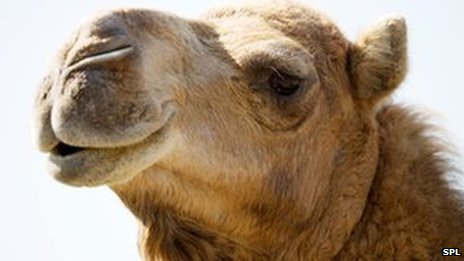 Riyadh, Nov 12: A camel from a Jeddah farm has tested positive for the Middle East Respiratory Syndrome (MERS), the first case of an animal infected with the coronavirus that has killed 64 people worldwide, the Ministry of Health said Monday.
Riyadh, Nov 12: A camel from a Jeddah farm has tested positive for the Middle East Respiratory Syndrome (MERS), the first case of an animal infected with the coronavirus that has killed 64 people worldwide, the Ministry of Health said Monday.
A ministry statement carried by Saudi Press Agency said the camel “tested positive in preliminary laboratory checks.”
The ministry said it was working with the ministry of agriculture and laboratories to “isolate the virus and compare its genetic structure with that of the patient’s.”
If the virus carried by the camel and that of the patient “prove to be identical, this would be a first scientific discovery worldwide, and a door to identify the source of the virus,” it added.
Experts are struggling to understand MERS, which is so-called because all of the victims were either from the Middle East or have been in contact with someone from the region.
It is considered a deadlier but less-transmissible cousin of the SARS virus that erupted in Asia in 2003 and infected 8,273 people, nine percent of whom died.
In August, researchers pointed to Arabian camels as possible hosts of the virus, which has hit hardest in Saudi Arabia, where 53 people have died from the disease since it appeared in September 2012.
Like SARS, MERS appears to cause a lung infection, with patients suffering from a temperature, cough and breathing difficulty.
But it differs in that it also causes rapid kidney failure and the extremely high death rate has caused serious concern.
In other Gulf countries two fatalities from the MERS virus have been registered in Qatar, as well as one announced on Sunday by Oman.
The World Health Organization said on its website on Monday that it has been informed of 153 laboratory-confirmed cases of the MERS infection worldwide so far, including 64 deaths.






Comments
I could not refrain from commenting. Exceptionally well written!
my website: boob: http://www.telefonoeroticovero.it/
Add new comment